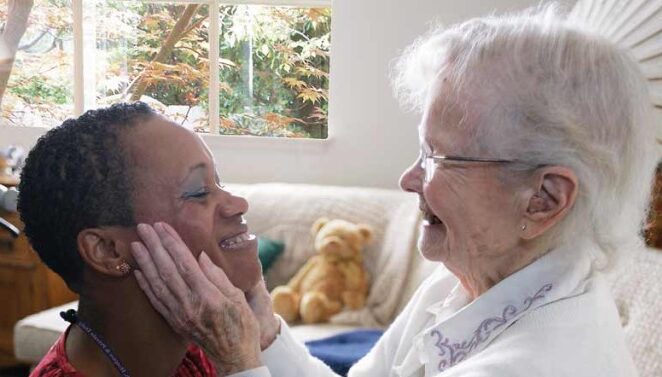
National Dental Hygiene Month: Promoting Oral Health for Older Adults
October is National Dental Hygiene Month, a time to raise awareness about the importance of oral health for everyone, especially older adults. As we age, maintaining good oral hygiene becomes increasingly vital, not only for dental health but also for overall well-being. This month serves as an opportunity to educate older adults and their caregivers about effective oral hygiene practices and the unique challenges faced by this demographic.
The Importance of Oral Health in Older Adults
Oral health is integral to overall health, particularly for older adults. Poor dental hygiene can lead to a variety of health issues, including gum disease, tooth decay, and even systemic conditions such as heart disease and diabetes. For older adults, the consequences of neglecting oral health can be particularly severe, leading to pain, difficulty eating, and decreased quality of life.
Moreover, oral health is closely linked to nutrition. Many older adults may face challenges with chewing and swallowing, making it difficult to consume a balanced diet. This can lead to malnutrition and other health complications. Therefore, promoting good oral hygiene practices is essential for ensuring that older adults maintain a nutritious diet and overall health.
Common Oral Health Challenges for Older Adults
Older adults often encounter specific oral health challenges, including:
- Dry Mouth: Many older adults experience dry mouth (xerostomia), often a side effect of medications. Saliva plays a crucial role in oral health, helping to wash away food particles and neutralize acids. A lack of saliva can lead to increased risk of cavities and gum disease.
- Gum Disease: Periodontal disease is prevalent among older adults, leading to gum inflammation, tooth loss, and even systemic health issues. Regular dental check-ups and proper oral hygiene can help prevent and manage gum disease.
- Dental Wear and Tear: Years of use can result in worn-down teeth, sensitivity, and other issues. Proper oral care and regular dental visits can help address these problems early on.
- Difficulty with Oral Hygiene: Physical limitations, such as arthritis, can make it challenging for older adults to maintain proper brushing and flossing techniques. Caregivers play a crucial role in assisting with these tasks.
Tips for Promoting Oral Health
- Regular Dental Visits: Encourage older adults to visit their dentist regularly for check-ups and cleanings. These visits can help identify and address issues before they become serious.
- Proper Oral Hygiene Routine: Promote a daily oral hygiene routine that includes brushing at least twice a day with fluoride toothpaste and flossing daily. For those with limited dexterity, consider using adaptive tools designed to make brushing and flossing easier.
- Stay Hydrated: Encourage older adults to drink plenty of water throughout the day, especially if they suffer from dry mouth. Sugar-free gum or lozenges can also stimulate saliva production.
- Healthy Diet: Advocate for a balanced diet rich in fruits, vegetables, whole grains, and lean proteins. Limiting sugary snacks and beverages can help reduce the risk of cavities.
- Education and Support: Educate both older adults and their caregivers about the importance of oral health. Providing resources, such as brochures or workshops, can help raise awareness and encourage proactive dental care.
Conclusion
As we observe National Dental Hygiene Month, it is crucial to focus on the unique oral health needs of older adults. By promoting good oral hygiene practices and providing support, we can help ensure that this demographic maintains optimal oral health, which is vital for overall well-being. Through education, regular dental visits, and a commitment to a healthy lifestyle, we can empower older adults to take charge of their oral health and enjoy a better quality of life.

